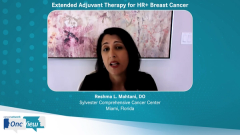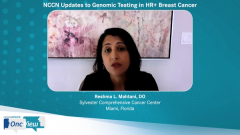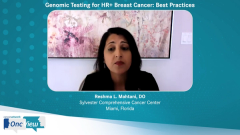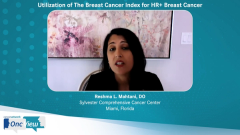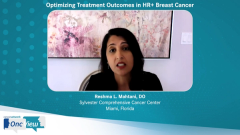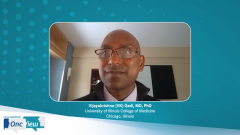
Optimizing Treatment Outcomes in HR+ Breast Cancer
An overview of unmet needs surrounding current treatment patterns for early-stage HR+ breast cancer.
Episodes in this series

Kristie Kahl: What are some of the unmet needs in the treatment of early stage hormone receptor–positive breast cancer?
Reshma L. Mahtani, DO: Although we’ve made considerable progress, we have quite a bit of work to do. We have data with CDK4/6 inhibitors in the adjuvant setting, and we’re trying to understand why we’re seeing seemingly different results from some of these agents, as well as learning whether the differences that we have seen will hold up with time. That’s an important area that requires further clarification.
It’s critical for us to get a better understanding of what’s happening in the younger patient population that is getting a benefit from chemotherapy, and whether it’s really the benefit of the chemotherapy or the induction of ovarian suppression. That’s going to be a really important area for us to clarify. Perhaps it will result in more widespread use of ovarian suppression, or we’ll identify that it really is a benefit of chemotherapy and that these patients should be treated. This is certainly an unmet need.
It’s also really important to understand the toxicities associated with our therapies and how to better mitigate those toxicities, especially endocrine therapy. Many patients suffer with adverse effects on these treatments. While it’s great to see the availability of a tool such as the Breast Cancer Index come into more widespread use to spare women some of the toxicities, for those women where we identify that there really is a benefit, we need to do better in helping them manage some of these more common adverse effects because they significantly impact quality of life.
Kristie Kahl: Absolutely. Thank you so much, Dr Mahtani. I hope that you found this information to be valuable in your clinical practice. Thank you all for watching this CancerNetwork® OncView program from MJH Studios™.
Transcript edited for clarity.
Newsletter
Stay up to date on recent advances in the multidisciplinary approach to cancer.


